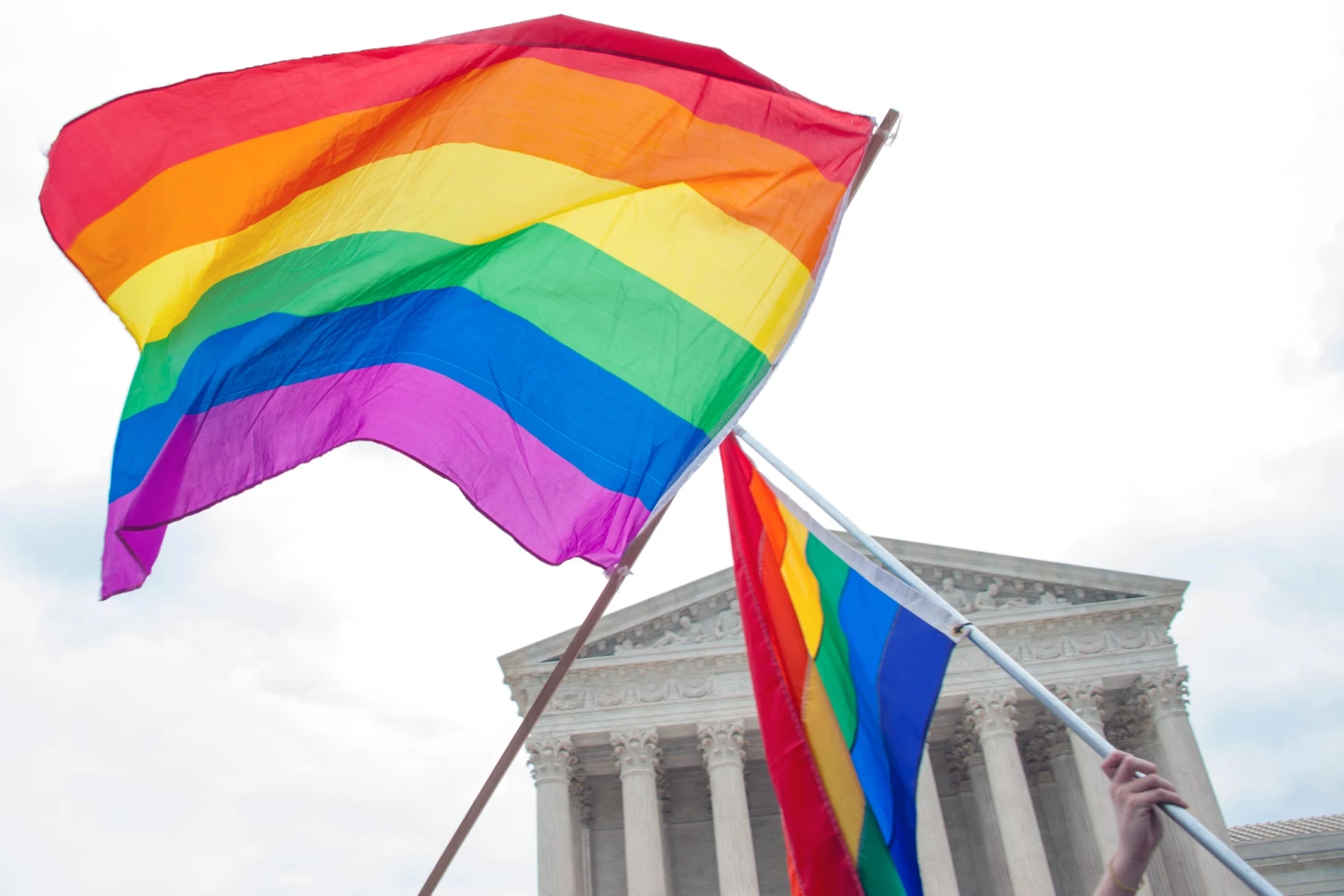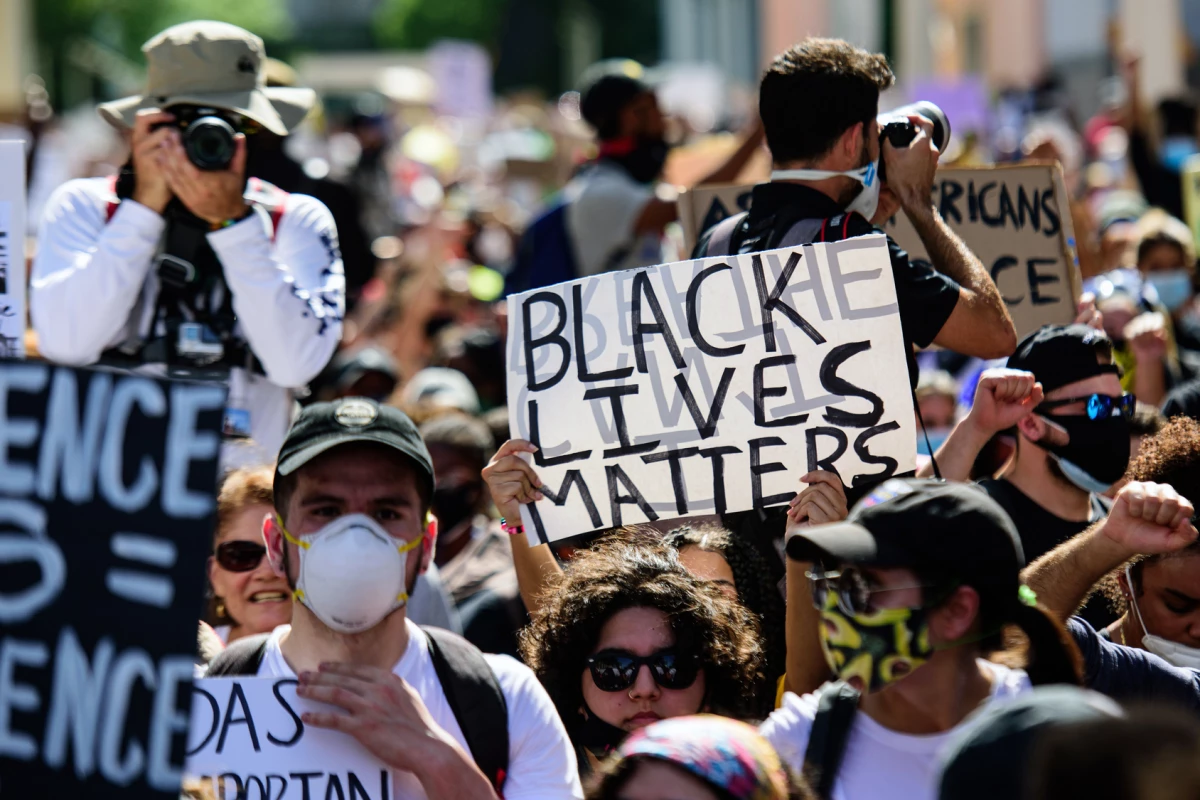The Black Lives Matter protests that spread across the US in 2020 caused a rapid drop in racial bias, but by the end of the year, it had risen again, according to new research. While the protests shone a light on institutional racism, this study highlights the need for using other measures to ensure long-lasting change.
The murder of George Floyd sparked a wave of months-long protests across the United States against police brutality and related injustices against Black Americans. It’s estimated that between 15 and 26 million people participated in the 2020 Black Lives Matter (BLM) demonstrations that were rekindled by Floyd’s death, making them the largest movement in US history.
But what effect did the 2020 BLM demonstrations have on White Americans’ racial bias? New research by Radboud University in The Netherlands sought to answer that question.
“Everyone has associations with certain groups of people,” said Max Primbs, a PhD candidate from the Behavioral Science Institute at the University and the study’s lead and corresponding author. “For example, white people tend to associate black people often with negative themes, such as crime or violence. Importantly, this type of prejudice does not necessarily reflect people’s explicit opinions, nor is it necessarily an accurate reflection of reality. Instead, these associations and the resulting biases are influenced by how these groups are talking about in your environment: in your social circle, but also by politicians or in coverage on news channels or social media.”

Implicit bias is the attitudes, feelings and stereotypes – positive and negative – about members of a certain group that we’re not consciously aware of. Explicit bias, on the other hand, is the attitudes, feelings and stereotypes we are consciously aware of. Such biases are potentially harmful because they devalue a person because of their membership in a particular group and can lead to prejudice. Given the large scale of the BLM protests, the researchers wanted to investigate whether that was a key factor in changing people’s minds and making them less prejudiced.
“The protests arose overnight and achieved tremendous scale immediately,” Primbs said. “The effect was quickly visible in the data: white Americans suddenly thought much less negatively about black Americans after George Floyd’s death.”
The researchers obtained measures of implicit and explicit racial bias, perceived social norms, political orientation, gender, and age from the 2020 race dataset collected by Project Implicit, a non-profit organization and network of researchers investigating the thoughts and feelings largely outside of conscious awareness and control.
Because their study was concerned with social norms – informal rules that govern our behavior – the researchers wanted to ensure that all participants were from the same racial in-group, so they restricted analyses to White US-based participants. The Project Implicit data was combined with data from Google Trends (Google searches for the exact term “Black Lives Matter” per state in 2020) and the Armed Conflict Location Event Data Project (ACLED) database (number of BLM protests per state during 2020).
Because directly asking people what they think about a particular minority group often prompts a socially desirable response, the researchers used a computerized task to assess implicit bias. Participants were asked to use buttons to associate images of Black people with “good” or “bad” and images of White people with “good” or “bad”. Typically, people respond more quickly if “White” and “good” are associated or if “Black” and “bad” are, indicating a greater implicit bias against Black people. Explicit bias was measured using an 11-point "feeling thermometer," on which participants rated how warm or cold they felt toward White and Black people, ranging from "Extremely Cold" (1) to "Extremely Warm" (11).
In the present study, the data demonstrated that bias towards Black people rapidly and considerably diminished immediately after the BLM protests started. However, the effect faded, and implicit and explicit bias increased again, almost reaching pre-BLM levels towards the end of 2020. Interestingly, the researchers noted that Google Trends indicated that a few weeks after George Floyd’s death, there were increasingly fewer searches for terms like “Black Lives Matter” and “George Floyd.” They found no evidence that social norms were the mechanisms underlying the changes in bias.

The researchers believe the rapid drop in implicit bias seen at the beginning of the BLM protests was triggered by the extreme nature of the events and the fact they provided Americans with confronting, counter-attitudinal information – that is, information that didn’t align with their attitudes, values, or opinions. Alternatively, they say the drop could have occurred because the start of the 2020 BLM protests attracted different people to Project Implicit to complete bias surveys compared with before.
“Regardless of which explanation you favor, the phenomenon that the Project Implicit website attracted different people is interesting on its own: Why did the onset of the 2020 BLM protests change the demographic composition of the Project Implicit sample?” the researchers wondered.
Based on their findings, the researchers noted that the mechanism by which protests such as BLM influence bias may be different from other mechanisms. In particular, they point to the sharp reduction of implicit and explicit antigay bias – at roughly double the normal rate – after the US Supreme Court legalized same-sex marriage.
“It’s always good if you can mobilize people in protests,” said Primbs. “That way, you can raise awareness around an issue, such as racism. But to bring about lasting change, you need new policies. Otherwise, you are quickly back to square one as soon as the attention for the subject slackens again.”
The study was published in the journal Personality and Social Psychology Bulletin.
Source: Radboud University







